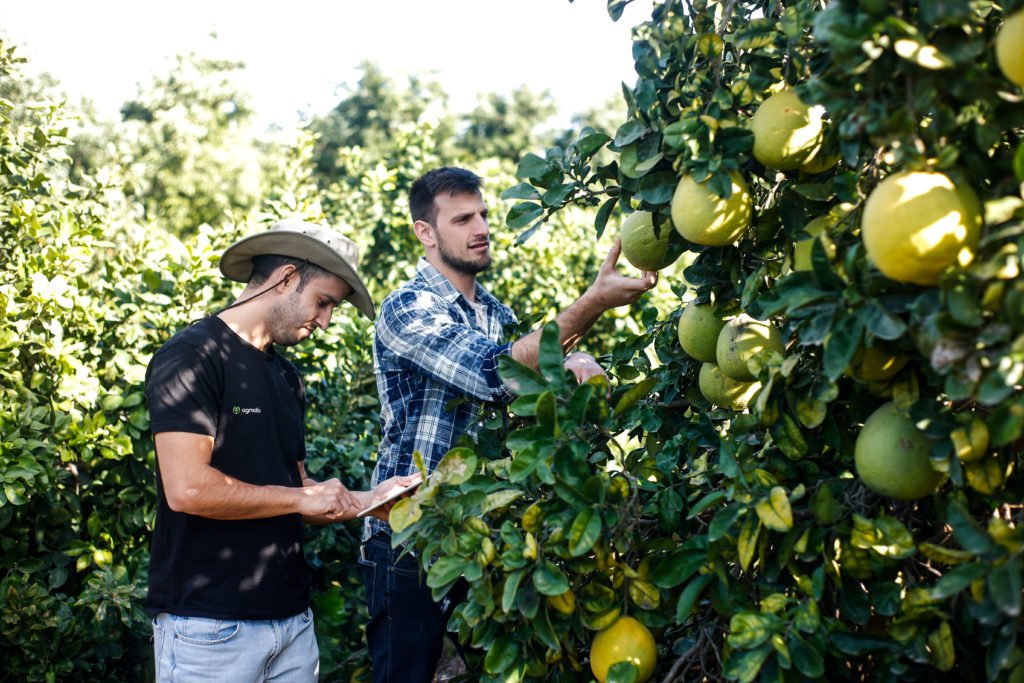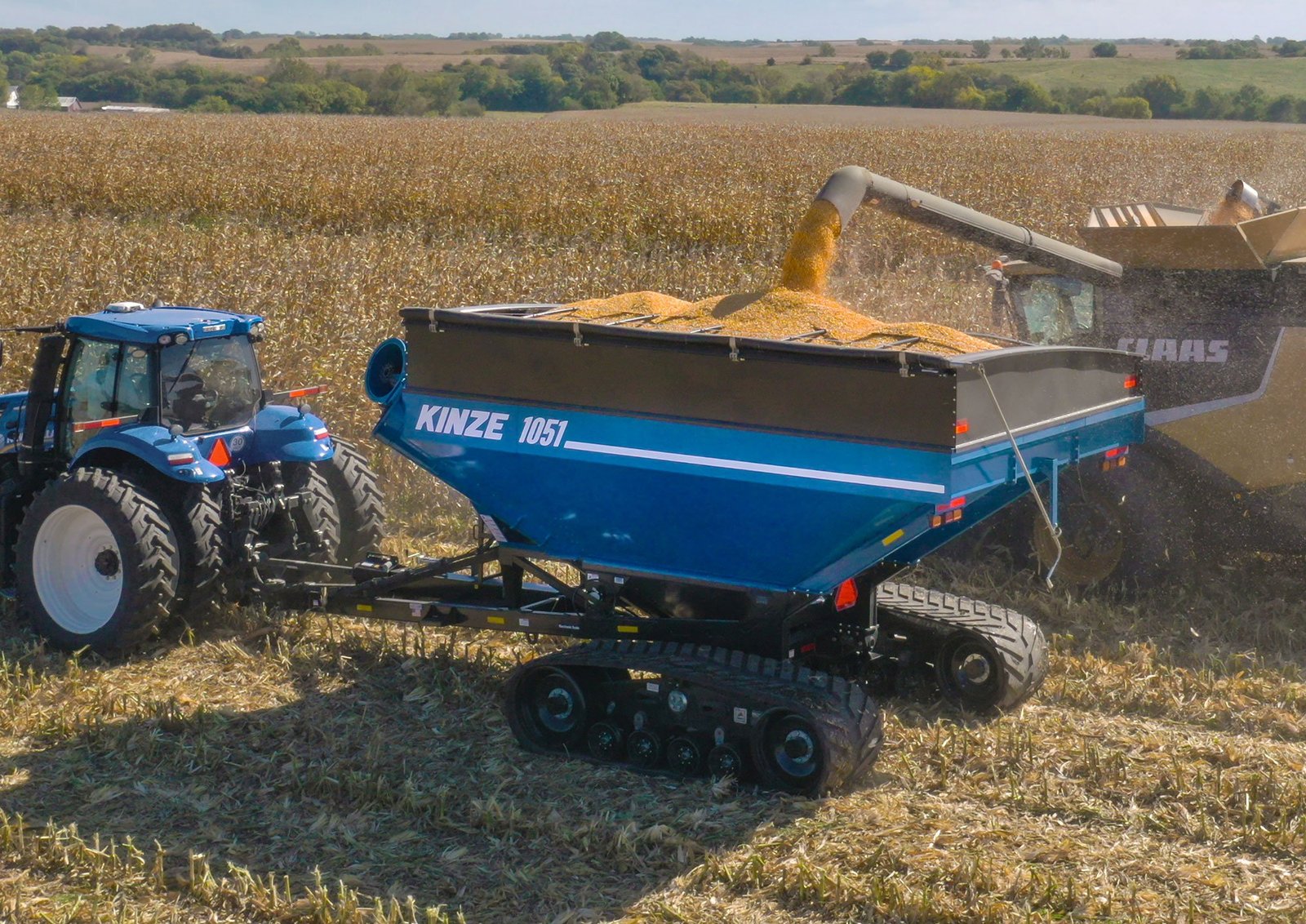By Ron Baruchi, President & CEO of Agmatix
With artificial intelligence (AI) and Big Data increasingly becoming a part of everyday life, discussion is opened up around the various ways and industries in which these technologies are used. In this Q&A, Ron Baruchi, CEO of Agmatix, explores the many ways in which the industry is impacted by AI and Big Data, and the potential benefits they offer to stakeholders across the industry landscape.
How are AI and Big Data used within the food industry?
Big Data and AI can provide unique insights into a wide variety of processes. For this reason, these technologies are increasingly embraced in almost every industry. This trend extends to the food industry, where they can be utilized at several stages to improve the production and sales processes.
When looking at the food supply value chain, beginning with the initial stage of growing the raw food ingredients, AI and Big Data can be used to enhance and improve processes, for example, by aiding the development of new crop varieties. These new varieties can help solve issues with food production, such as creating crops with disease tolerance, crops that require fewer resources and produce higher yields, or even textural or taste preferences driven by consumer demand such as seedless grapes or sweeter fruits.
By utilising AI alongside modern, cutting-edge technologies, we are able to convert Big Data into one common language, making it possible to gather and process vast quantities of data from a range of sources, including research trials worldwide. These can then be used to generate science-based, actionable insights and functional crop models that can be implemented at field-level. Whether this is providing intelligence on field trial management, optimal fertilizer quantities, or ways of minimizing the spread of certain crop diseases, these insights help drive better decisions, facilitate more sustainable farming practices, and enable new product innovations that have positive effects on the rest of the food supply value chain.
Why are Big Data and AI valuable to those in the food industry?
Efficiency is vital to any industry to keep costs low, protect profit margins, and compete in globalized markets. For the food industry specifically, Big Data can be used from the outset to optimize production of raw ingredients. Big data can be processed and analyzed to create dynamic crop models founded on scientific-based insights, helping farmers to achieve substantial benefits in terms of yields, crop quality, and sustainability. For example, it can be used to ensure food manufacturers are either growing or sourcing high-quality crops, and that the yield is high enough to meet production requirements for the end products while at the same time being sustainably produced to lower agriculture’s carbon footprint. With greater efficiency, farmers can maximize crop production, therefore reducing the price of the raw ingredients and creating a ripple effect throughout the rest of the food supply value chain.
How are AI and Big Data improving sustainability within the food industry?
Sustainability is the focus of the century, with businesses and individuals alike trying to better their practices and achieve a more sustainable way of living. This is driven by both consumer demand and government incentives and is a core focus within the food industry. Big Data and AI enable data-driven insights that inform decision-making across the food supply value chain around sustainable farming and production practices. Leveraging Big Data and AI make positive change for greater sustainability not only something we can quantify and measure but also ensure that positive change scales with the needs of feeding a growing world population.
Agriculture is responsible for approximately 18% of global greenhouse gas emissions, and fertilizer use is a significant part of this – however, by utilizing agronomic data to understand crop nutritional needs, fertilizer usage can be adjusted to optimize crop yield. Additional benefits include production cost savings, increased efficiency for the farmer, and a positive impact on the environment. The use of Big Data also enables evidence-based estimates on the carbon emissions of specific crop nutrition plans, allowing farmers to compare recommendations and understand the trade-off between maximizing yields and minimizing detrimental environmental effects. In some countries, companies can even benefit from lower taxes as a result of lowering emissions, or from selling unused carbon credits. AI and Big Data could also be used to improve transport efficiency, analyze quantity requirements at each stage of production or transport location, and improve efficiency of the food manufacturing processes.
In what ways is this technology being used to drive innovation in the food industry?
Aside from simplifying and streamlining processes, another interesting way AI and Big Data can be used within the food industry is to predict the level of consumer demand. Previous data from either food manufacturers’ own product portfolio or similar product lines, as well as relevant data such as average disposable income of each location, enables product sales figures to be estimated before goods have even been transported to the shop. This is revolutionary for food manufacturers, as they can use this data to produce and transport only what is needed, reducing waste and lowering the carbon footprint of production and transport – not to mention providing critical insights to inform product development and key decisions around R&D.
What is the future of Big Data and AI in the food industry?
In keeping with the information age, I see Big Data and AI being used increasingly in the coming years. Industries and businesses leveraging Big Data and AI are accelerating their new product innovation pipelines, giving them a competitive edge. With few barriers to entry, the technology is easy and quick to adopt and implement, and the potential is only increasing. As automation becomes more prevalent, we see a larger integration of the technology. The more automated processes become, the more data there is to be gathered and analyzed, therefore improving the actionable insights that can be implemented.
Improvements in technology have made it easy to share data and connect with other researchers. This collaborative effort means that Big Data is increasingly available globally and industry-wide. The use of AI is making this agricultural data more meaningful and enabling faster innovation by connecting research and development with supply chains. Big Data analysis offers the food industry the possibility to boost efficiency, profitability, and sustainability, creating a compelling case for embracing Big Data and AI technologies.
 Ron Baruchi, President & CEO of Agmatix – With over 20 years of experience in the technology sphere, Ron wanted to take this experience to the agricultural sector. Passionate about using data to solve complex problems, he has used his expertise in technology with Agmatix to improve crop yields and quality while limiting environmental impact.
Ron Baruchi, President & CEO of Agmatix – With over 20 years of experience in the technology sphere, Ron wanted to take this experience to the agricultural sector. Passionate about using data to solve complex problems, he has used his expertise in technology with Agmatix to improve crop yields and quality while limiting environmental impact.














